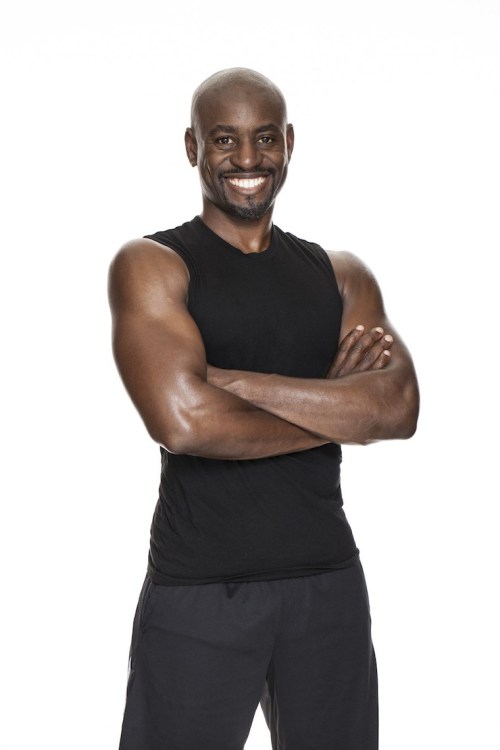Do short-term fitness challenges really work?
We asked two experts with very, very different opinions to weigh in on the pros and cons of short-term fitness challenges.

From 12-week “bride-to-be” packages, to the countless six-week “get-ready-for-whatever-season-is-right-around-the-corner” schemes on Instagram, it seems like everyone’s got their own version of the quick fitness plan. The allure is obvious: If you buckle down for just a short period of time, you can make major changes.
But for every proponent, there’s a skeptic who sees short-term challenges as a (potentially dangerous) quick-fix rather than a truly meaningful lifestyle change, setting you up for failure down the road. (Insert sad-face emoji.)
All of which begs the question: Are short-term fitness challenges an awesome tool to have in your wellness arsenal, or should you really be looking to play the long game?
We asked two experts with two very different opinions to weigh in.
The fan: Robert Brace, celebrity trainer and founder of the 28 Day Challenge

Robert Brace doesn’t just think short-term fitness plans can work; he knows they can, he says, because he’s witnessed it IRL. Brace—a former ballet dancer who appeared on Food Network’s Fat Chef—works as a personal trainer in New York City, but he also has his D28 program.
The reason why he’s all-in on the fitness challenge phenomenon? He thinks it helps meet people where they actually are.
“While there are obvious merits to the slow-and-steady approach, many of us just aren’t wired that way and can get easily discouraged when we don’t see fast results,” Brace says. “When done right, however, short-term challenges can give you the results you want, while also teaching you what you need for long-term success.”
“Done right” in Brace’s world, means there needs to be extreme attention paid to diet, and a very clear, very specific fitness plan ahead of time. And you’ve got to be really committed. “You can’t just look at calendar of burpees and push-ups over four weeks and expect that to change your body—or your fitness level,” he says. It’s also essential to have a coach who can help motivate you, whether that’s a trainer, a small group of friends, or even a fitness personality you really jive with, Brace says. Plus, your plan must include a mix of metabolism-revving HIIT and weight training.
It’s also important to listen to your body so you don’t overdo it, and to keep your expectations in check. “I’m not going to lie and say you’re going to see massive changes that will change your body forever in one month,” he says. “You should view it as a way to accelerate your results in the short term and transition them into a long-term lifestyle plan.” If you’re willing to think of short-term challenges through that lens, then Brace believes they can definitely live up to the hype.
The skeptic: Brian Ripka, founder of Ripped Fitness

Brian Ripka’s Ripped training method aims to be the SoulCycle of running studios—HIIT on the treadmill in a fun class setting. (He’s got a location in Rye Brook, New York, and one coming to NYC later this fall.) Ripka says his tough-as-nails classes promise lasting results, but they’re also all about fostering a sense of community because that’s what keeps people coming back—and for him, that’s the number-one goal. “When you find something that works, it should make you want to stick with it forever,” he says.
Ripka’s beef with short-term challenges is that they can force people to overtrain and do real damage to their bodies and their morale, especially if they’re just following something online without any personalized guidance.”Working the body and mind as hard as most of these challenges advocate for over a short period of time is unsustainable, which is why many people tend to crash and burn or simply give up,” he says.
Don’t even get him started on Instagram accounts that claim to show off the dazzling results of quick, super-intense diets. “People see these images of others who have supposedly finished the program and then get depressed about their state,” he says. “I strongly encourage my clients at Ripped not to fall for it.”
The key to forging a consistent relationship with fitness, he says, is understanding that training requires periods of work followed by periods of rest, and to think long-term. “I encourage all of my clients to certainly raise the bar and push themselves, but not to set end goals,” he says. “Over-reaching is good; over-training is bad, and understanding the difference between the two is critical.”
Temperatures may be dropping, but your workout routine is heating up! Check out our Fall Fitness Preview, your guide to having your healthiest fall yet. And make sure to mark your calendars: Well+Good’s annual Fitness Biathlon in NYC is back this October 22.
Sign Up for Our Daily Newsletter
Get all the latest in wellness, trends, food, fitness, beauty, and more delivered right to your inbox.
Got it, you've been added to our email list.










